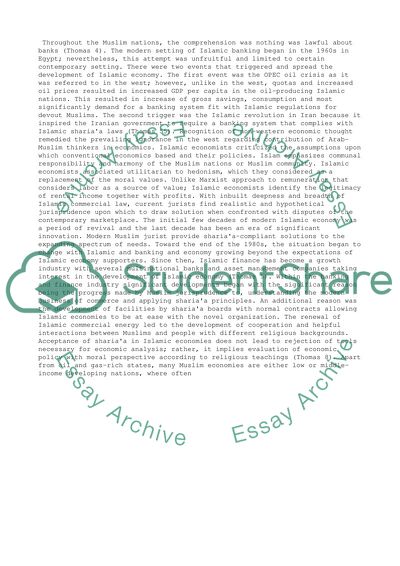Cite this document
(“Islamic economy Essay Example | Topics and Well Written Essays - 1000 words”, n.d.)
Retrieved from https://studentshare.org/business/1473398-islamic-economy
Retrieved from https://studentshare.org/business/1473398-islamic-economy
(Islamic Economy Essay Example | Topics and Well Written Essays - 1000 Words)
https://studentshare.org/business/1473398-islamic-economy.
https://studentshare.org/business/1473398-islamic-economy.
“Islamic Economy Essay Example | Topics and Well Written Essays - 1000 Words”, n.d. https://studentshare.org/business/1473398-islamic-economy.


